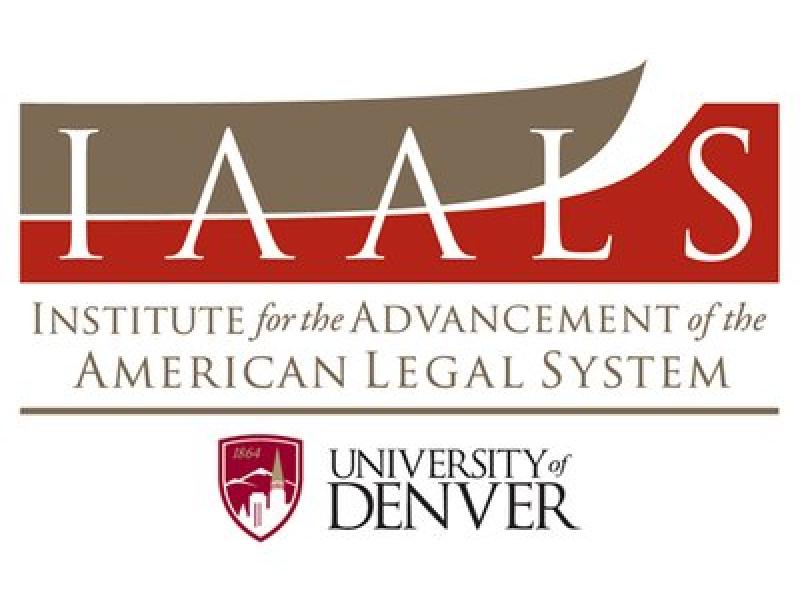
Document Author(s):
Year Published:
State:
Region:
Report: Better Access Through Unbundling Post-Conference Report (IAALS 2018)
On October 26 - 27, 2017, the Institute for the Advancement of the American Legal System (IAALS), in partnership with the American Bar Association (ABA) hosted the Better Access through Unbundling: from Ideation to Implementation Conference. IAALS published the post-conference report on August 16, 2018. The below excerpt introduces the report. Visit IAAL's Better Access through Unbundling page for more information.
Introduction
Reform-minded lawyers recognize that the legal profession cannot maintain a monopoly on services it does not provide. High percentages of litigants in civil and family cases are navigating court processes without attorneys. Although the factors that drive people to self-represent are multifaceted, the cost of legal representation is a major component. Many segments of the legal profession are responding to this growing reality by focusing on new, client-centric models of legal services delivery. Among these, the unbundled legal services model (also referred to as limited scope representation, limited assistance representation, or discrete task representation) is increasing in visibility.
In October 2017, IAALS, the Institute for the Advancement of the American Legal System at the University of Denver, partnered with the American Bar Association (ABA) Standing Committee on the Delivery of Legal Services to host a national two-day conference on advancing implementation of the unbundled legal services model. Better Access through Unbundling: From Ideation to Implementation brought together diverse stakeholders from 26 states, Washington D.C., and Canada to share perspectives, exchange best practices, and chart paths for deeper collaboration.
Conference attendees heard from leaders in the field of unbundled legal services. Diverse panels and presentations queued important issues, challenges, and opportunities:
- What do self-represented litigants want? What are lawyers providing?
- How do we reach law students, newly admitted lawyers, and even seasoned practitioners to provide a broader platform of unbundled legal services?
- What do we know about the practitioner’s experience with unbundled legal services? Are certain client populations better served than others?
- How do we engage a wide variety of collaborative stakeholders in the pursuit of advancing unbundling and take advantage of the nexuses they create?
- How are technology solutions creating new dynamics around the implementation of unbundled legal services?
- How can rulemakers and other decision makers create policy and other guidance to clearly chart the course toward implementation and provide direction on risk assessment?
- What are best practices with respect to implementing and advancing unbundling?
- How can we engage the bench in order to legitimize the unbundled services model?
- What are practitioners’ concerns with unbundling and how can we diffuse them?
The robust agenda of panel presentations and interactive working group discussions yielded a number of actionable tools, techniques, and strategies applicable to stakeholders around the country. The following report provides a summary of these recommendations and solutions.
Section I first offers a brief overview of the unbundled legal services model, its history, and its structure. Sections II and III outline the high-impact discussion points that emerged from conversations about stakeholder-specific strategies for advancing unbundling and solutions for deeper collaboration across stakeholder groups, respectively. Section IV details elements of the strategic plans developed by representatives from states in varying stages of adoption and implementation. Section V concludes with hyperlinks to Conference resources.
This report and the solutions detailed therein are designed to add to the strengthening foundation for widespread implementation of unbundled legal services.
Recommended citation: Natalie A. Knowlton, Better Access Through Unbundling: from Ideation to Implementation, IAALS (2018). Available at https://iaals.du.edu/sites/default/files/documents/publications/better_a....